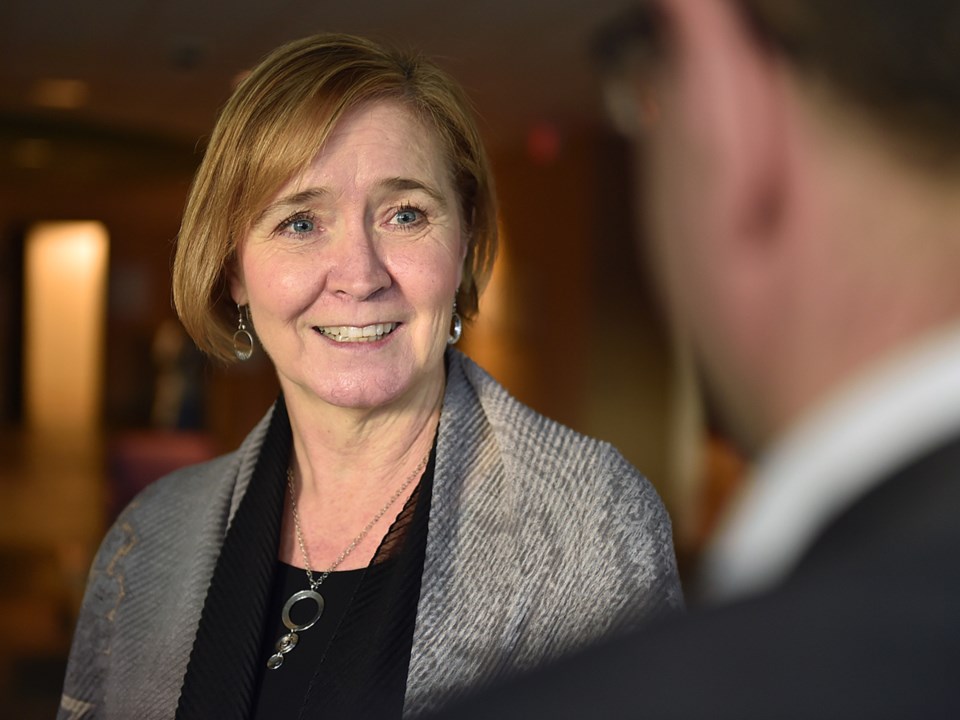A Vancouver institution with more than 130 years’ worth of history made history itself earlier this month.
For the first time, the province’s largest, and arguably most diverse, city has a woman at the helm of its education system.
Suzanne Hoffman became Vancouver’s superintendent of schools on Jan. 8. Before her came 14 others — four of whom served in interim superintendent capacities. John Lewis was the previous interim superintendent, while Scott Robinson left the full-time post in June 2017.
Hoffman spoke to the Courier 11 days into her new job.
“It was my dad that actually pointed it out that I was the first female superintendent,” she said. “I don’t think I particularly thought about it because I’m here to do a job and I’m going to do the best job I can. I don’t think it’s really fazed me particularly.”
Hoffman comes to Vancouver with 30 years of history as an educator: first as a teacher in Mission, administrative roles in Langley and, most recently, as superintendent of learning transformation with the Ministry of Education. In that role, she toured the province giving presentations and hearing from parents about the revamping school curriculums.
She was in that position for a year and a half and arrives in Vancouver with established contacts within the education ministry and with NDP Education Minster Rob Fleming.
One thing she doesn’t arrive in Vancouver with: baggage.
“I’m very forward looking, forward thinking — I don’t have history, obviously, and I’m brand new to the district,” Hoffman said. “For me, with the team and the group that I’m working with, we are looking forward. We honour and respect whatever happened in the past but really we put our focus on going forward.”
Hoffman is acutely aware of the political tumult that embroiled the district for the better part of 18 months: bullying allegations, the mass firing of the previous board, senior staff leaving en masse and the handful of reports and investigations that dissected the whole thing.
Several reports issued last year pointed to a “toxic” workplace environment, one that was exacerbated by the school closure process that dominated 2016. Former trustees were accused of bullying and intimidating senior staff. Four of the six senior staff have since left the district, while a fifth retires this week. Those losses represent decades of institutional memory and best practices that are now gone.
“We have to be thoughtful and mindful about it,” Hoffman said. “But there are lots of great people coming back to work, people that are available and are very willing to help out and I’ve met a number of those folks already.”
Leading up to and after the October byelection, there was talk of collaboration from virtually every candidate running for office. The district has even revamped its policies around bullying and creating an inclusive workplace culture.
“I don’t think collaboration is always having to be nice,” Hoffman said. “But I think building a culture where people feel safe to express their opinions, offer advice and provide insights that go contrary to the grain or conversation at hand actually strengthens your place as you go forward.”
The stopgap between the previous and current board has been Dianne Turner, who’s now a special advisor to Fleming.
She was previously the official trustee and the lone decision maker at the board table. Her current contract is up in October and whether she’s retained is Fleming’s call alone.
On the topic of retention, Hoffman says the district still needs to hire 28 full-time equivalent positions.
“Yesterday would have been perfect,” is the answer Hoffman gave when asked when those positions need to be filled by.
The district has so far hired 600 teachers, but getting them to stay in an increasingly unaffordable city is not without its challenges. Hoffman says recruitment and retention isn’t unique to Vancouver, but rather a problem both provincially and nationally.
“From my perspective, how do we change that narrative and make this place so compelling of a place to want to work in and start to change the narrative around being a part of the VSB and the amazing things that city life can afford teachers,” she asked.
Hoffman still lives in Langley, although she doesn’t rule out a move to Vancouver. Her husband works in North Vancouver, while her two adult kids are pursuing post-secondary studies in nursing and business. Outside of work, she’s big on golf, orchestral music and running.
“Sitting quietly doesn’t often land well with me,” said Hoffman.
Given her new role, that’s likely a good thing.



